Orang Asli land under threat in Pahang as Musang King plantations grow
Some indigenous people in Raub claim they are paying the price for those looking to profit from the increasing demand for durians, while growers argue that they bring jobs to the area.
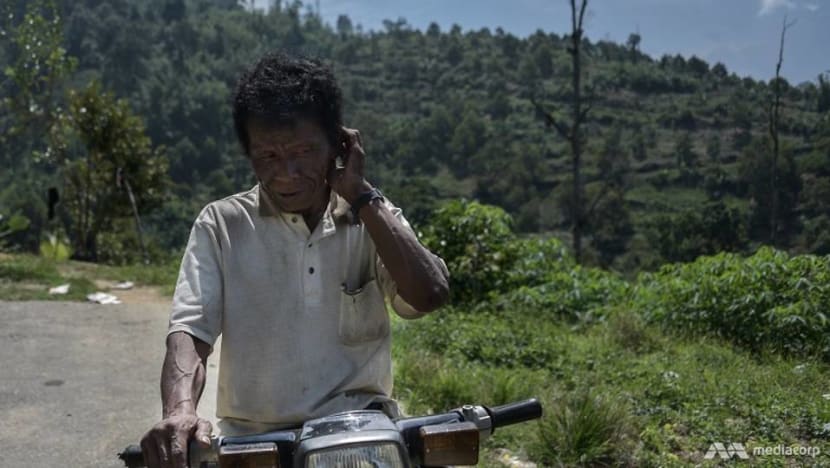
Mr Tam lives in an Orang Asli settlement close to durian plantations on Fraser's Hill. (Photo: Fadza Ishak)
RAUB, Pahang: The loud grunts of a crane’s engine pierced the silence of Bukit Telaga Village, near the foot of Pahang’s tourist hotspot Fraser’s Hill. The sound reverberated through the forest and interrupted the tireless croaking of crickets.
"That’s them at it again," said Mr Tam, an Orang Asli in his 40s who has lived at the village all his life. “Clearing forests to make way for more durian farms. The sound gets louder each day.”
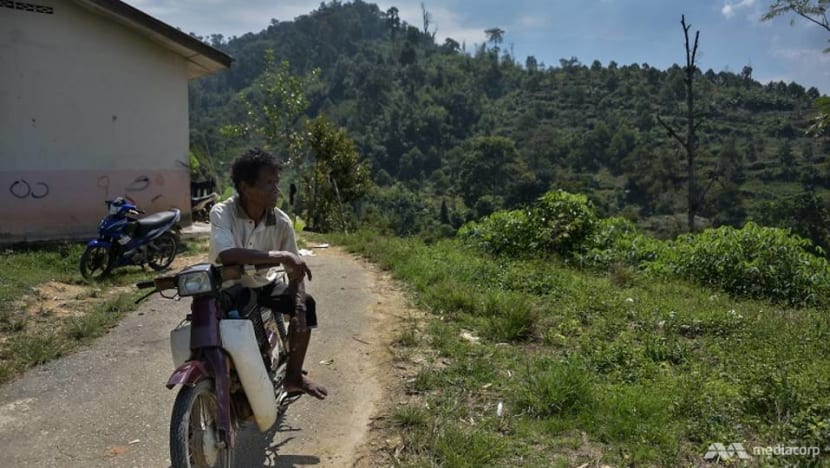
The villager, who only wanted to be known as Mr Tam, belongs to one of the nine Orang Asli families who live at Bukit Telaga. He told CNA that they are worried about how the plantations are encroaching on their land and surrounding forests where they gather food from.
He recounted incidents when members of his clan would argue with plantation workers for entering their village to look for more land.
“It’s not peaceful here anymore. We don’t sleep well because we are scared the fruits and property we have will be stolen,” said Mr Tam.
Indeed, the Orang Asli feel they are under siege from the growing number of plantations in the area. There is also a biodiversity dimension to the issue, with activists saying that the clearing of land will affect Malayan tigers' habitats.
On the other hand, the plantation owners say the Orang Asli can benefit from employment opportunities and wealth.
"THEY WILL FORCE US TO MOVE"
Bukit Telaga sits 500 metres upslope from rows of durian trees within fenced plantations. When CNA visited the area, there were at least three durian farms nearby.
Mr Tam said he was uncomfortable with the number of plantations that have sprouted up at Fraser’s Hill in recent years.
“One day they will force us to move because these (plantation owners) want to make more money, I’m sure of it. We don’t want to move. We have lived here in the forest all our lives,” he said.
Mr Tam and his clan live on a hillside clearing facing the Hulu Sempam area, a piece of previously forested land that has been cleared in recent years.
In 2018, Malaysian daily the Star reported that the 404-hectare plot of land, which borders a water catchment area and forest reserve, is being cleared for a Musang King durian plantation.
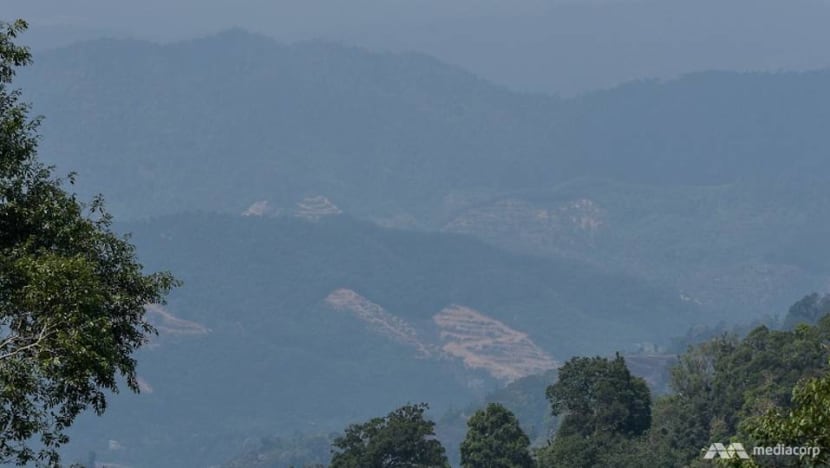
A logging licence was also awarded for another piece of land adjacent to the plot, the report said.
While the Pahang state government has gazetted most of the forests in and surrounding Fraser's Hill as protected forests for water catchment and soil protection purposes, there are still small pockets of forests, such as Hulu Sempam, which are not legally protected.
Raub is renowned regionally for being a durian hub that specialises in producing Musang King durian, a premium variety popular for its creamy texture and yellow fruit.
International demand for this variety, also known as Mao Shan Wang, has grown over the years, fuelled by consumers from China, Hong Kong, Macau and Singapore.
READ: Musang King millionaires: Pahang town's durian businessmen turn wealthy as demand increases
To feed this growing demand, plantation owners, with the permission of the Pahang state government, have cleared the Hulu Sempam rainforest to grow durians.
"IT'S ALL ABOUT CASH"
The chief of Bukit Telaga Village, Tok Batin Ahsai, told CNA that the territorial lines between his district and the plantations have blurred in recent months.
“We don’t have any authority to chase people away; that (land belongs to) the government. But as long as we are allowed to live here, we will protect our land,” he added.
Ms Sophine Tann, president of non-government organisation PEKA Malaysia, echoed the residents’ sentiments that the forests on Fraser’s Hill should be preserved.
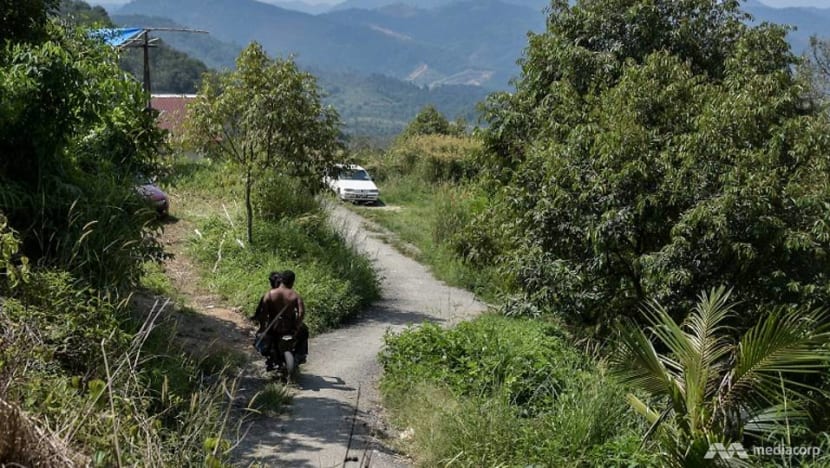
Ms Tann has worked with indigenous people in various parts of peninsula Malaysia, and she noted that Pahang's Orang Asli are increasing “threatened” by durian plantation owners.
“The durian industry is all about cash right now. Plantation owners want to grow durians, so (when) they propose (expansion) to the state government and Pahang Forestry Department, they get approval quickly. This is the kind of attitude that will threaten the rights of the Orang Asli to live in their home,” she told CNA.
“We have to protest these actions. We Malaysians have the right to our forests, not the state or federal government,” Ms Tann added.
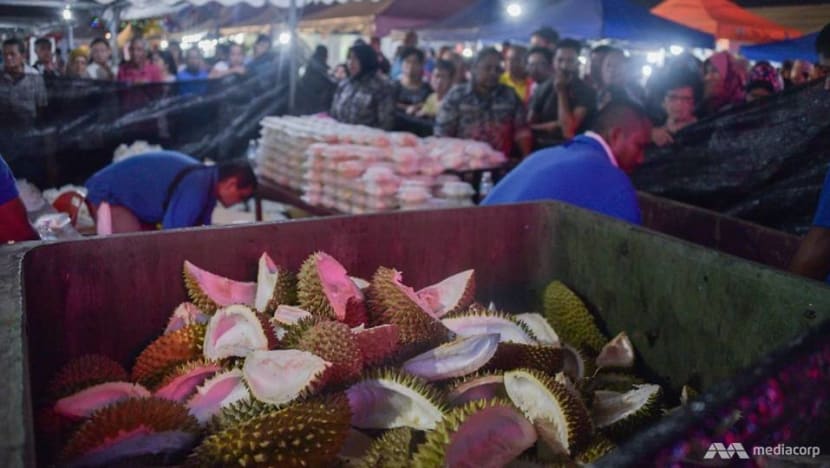
During Raub’s International Durian Festival last week, Pahang’s chief minister Wan Rosdy Wan Ismail emphasised that Raub should utilise its land to boost its production of Musang King durian to attract tourists, especially visitors from China.
However, Mr Wan Rosdy did highlight to farm owners that they should be more aware of the environmental angle.
“I want to remind all plantation owners to take care of the environment while farming. and all owners follow the rules and regulations, and don’t harm the environment.
“If these things are adhered to, it will create a positive environment and boost the economy of Pahang,” he added.
ORANG ASLI CAN BENEFIT FROM JOBS: DURIAN FARM OWNER
The growers maintain that their plantations are located within land sanctioned for the cultivation of the fruit by the state government.
One example is Mr Jovi Kong, who owns two durian farms in Raub totalling 85 acres. One of his farms is 5S Durian Station, which also has a restaurant area serving durian and drinks. It is located on Fraser’s Hill, around 600 metres downslope from Bukit Telaga Village.
Mr Kong believes that the Orang Asli settlement in the area would also benefit from the Musang King riches that Raub offers.
“Actually, you can’t say that the Musang King plantations have negatively impacted the Orang Asli. They bring employment and help them earn money,” he said.
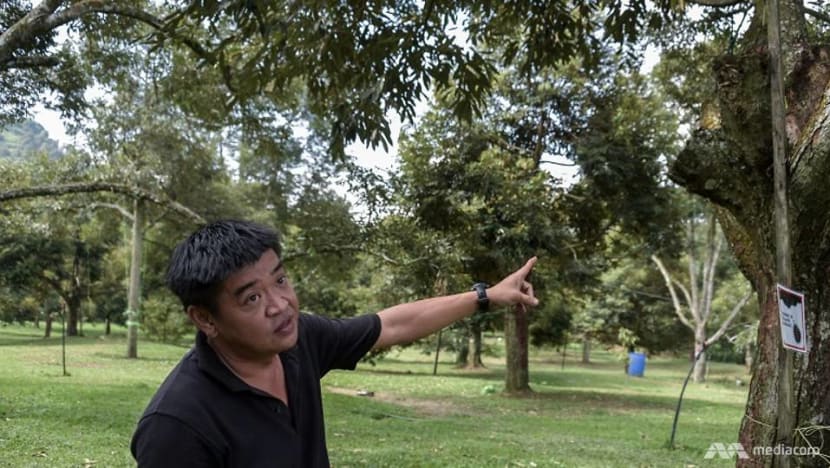
“Raub is very different from other towns. People living here are rich, there’s the spending power and people have jobs because of the durians,” Mr Kong added.
Meanwhile, Mr Lu Yuee Thing, another Raub durian plantation owner in the area, told CNA that he has farmed durians in the area for 40 years.
His farm – Uncle Thing Durian Leisure Farm – grows largely Musang King and Black Thorn varieties. Both are premium durians that are popular among China and Hong Kong importers.
He denies that his land was ever owned by Orang Asli, and stressed that the land was given to his father and other plantation owners by the British government in the 1940s.
“The question (that we are stealing Orang Asli land) is usually fielded by foreigners who are trying to spoil Malaysia’s image," he said.
He noted that managing durian farms is a laborious and cost-intensive endeavour. "Durian trees are not like rubber and palm trees, where they can slowly mature on their own. If you don’t manage durian trees well, they will die.”
MALAYAN TIGERS IMPACTED?
Meanwhile, wildlife activists have claimed that the durian plantations at Hulu Sempam are threatening the survival of the Malayan tiger.
Ms Siti Zuraidah Abidin, World Wildlife Fund’s head of protected areas in peninsula Malaysia said Hulu Sempam has been identified as an area where the critically endangered Malayan tigers are expected to live in.
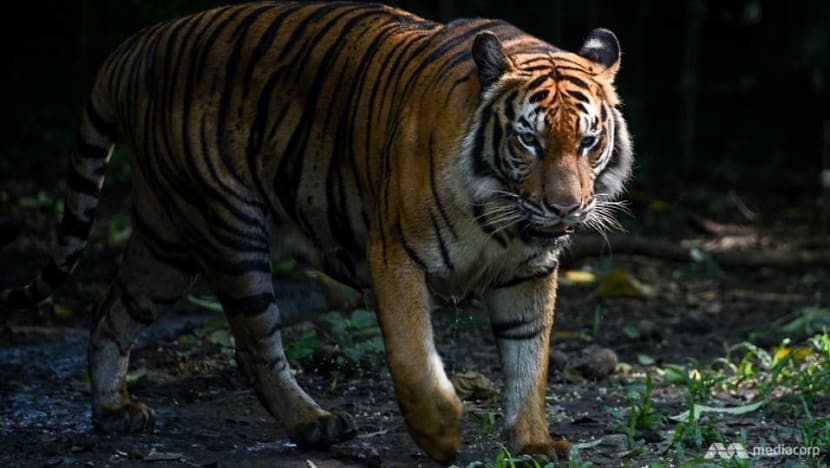
While the surrounding forests of the Hulu Sempam area - which are confirmed tiger habitats, are protected by the government, she warned that the clearing of forests can have wider-reaching consequences.
“The clearance of natural forest for any sort of plantation in tiger habitats would not only fragment and reduce (their) natural habitat, but also likely expose the area to higher poaching incidences," she said
"This is especially so since forests that were inaccessible before would now be accessible through roads that lead to such plantations, which in turn facilitates poaching.”
She added that the Hulu Sempam area was identified as an Environmentally Sensitive Area Rank 1 in the Pahang Structural Plan 2050, which means that “protection of its ecological integrity is of the highest priority”.
Durian growers, however, dismiss the possibility.
Mr Kong said he has never seen a tiger anywhere near his plantations. “When the tigers hear that there are humans in the area, they would stay away in the forest. We don’t approach them and they don’t disturb us,” he said.












